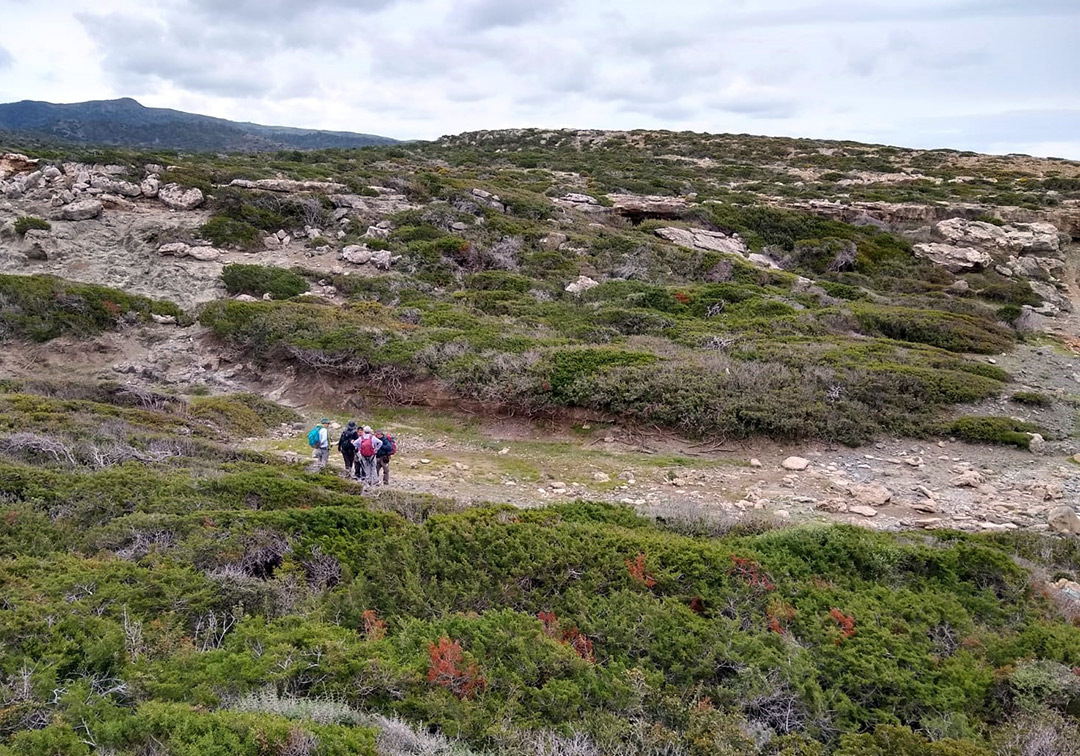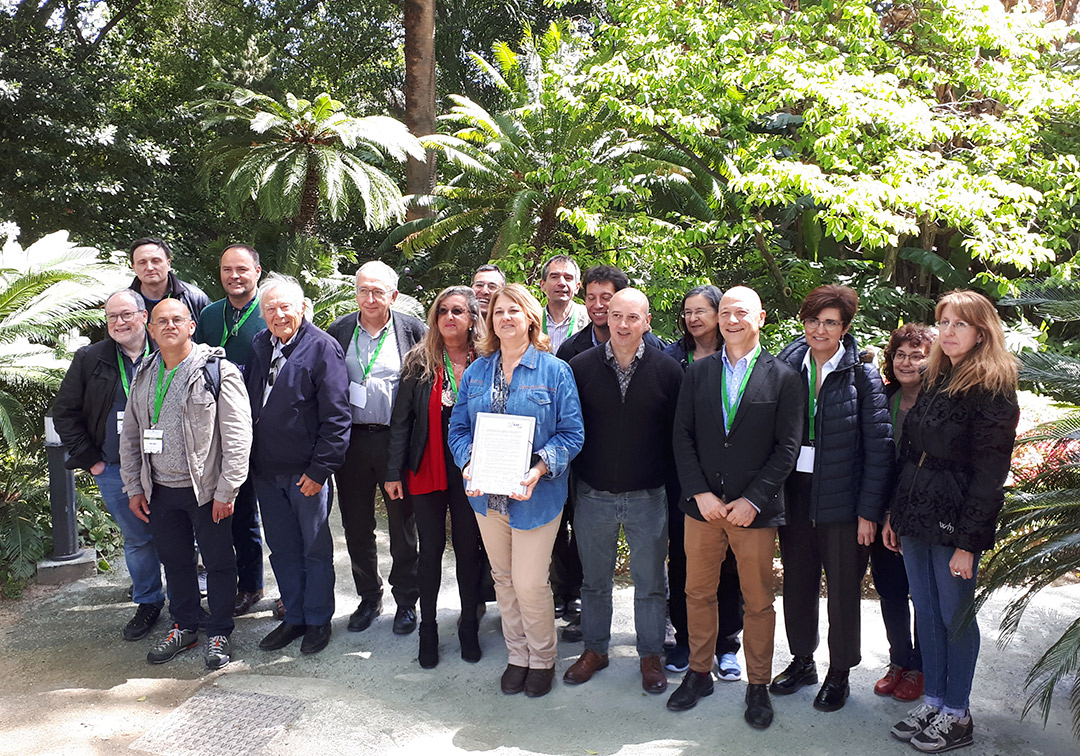The expedition to Cyprus organised by the Botanical Garden collects samples of 20% of the vascular plants of the island
- Botanical Garden
- May 3rd, 2019

The director of the Botanical Garden, Jaime Güemes, has been the scientific in charge of the botanical expedition to Cyprus, in which researchers of the Real Jardín Botánico (RJB-CSIC) and the universities of Lleida and Murcia have taken part. The expedition, carried out last week, has been organised by the Botanical Garden in collaboration with the herbarium of the Forest Department of Cyprus (CYP), in Nicosia. The researchers have collected samples of almost 20% of the native species of this Mediterranean island.
The campaign carried out in Cyprus, fruit of the labour of the herbalists of the botanical gardens of Madrid an Valencia (MA and VAL) to improve and expand the scientific collections of plants in the Mediterranean coast, has resulted in the collection of vegetable samples of almost 20% of the approximately 1600 native species that constitute the vascular plants of this island. Cyprus, located in the Eastern Mediterranean, has a great number of biogeographical influences from the Asian continent and, simultaneously, has many physiognomic and taxonomical similarities with the Iberian flora.
The work of this research team covered a great part of the diversity of habitats present in the island, from the limestones or gypsum of the lower areas to the plutonic materials of the mountain ridge that crosses the island from East to West, the highest peak of which is called the Olympus (1970 m), like the one in Greece. The botanists went across the Cedrus brevifolia (Cypriot cedar) and Pinus nigra pallasiana forests, both of which are endemic of the island. They also were able to study the natural populations of Platanus orientalis and found a specimen of more than 800 years old in the hermitage of Ayia Mavri, one of the biggest trees in Cyprus, under protection since 2004.
The hundreds of vegetable samples collected will be placed in the respective herbariums, available for the scientific community. The expedition is a part of the programme for the exploration or collection of plants from relatively unexplored places in the Mediterranean. Last year, a campaign organised by the Botanical Garden of the Universitat de València went to Crete. The objective of these expeditions is to enrich the scientific collections of the participating institutions.
File in: Jardí Botànic , Investigació a la UV

















